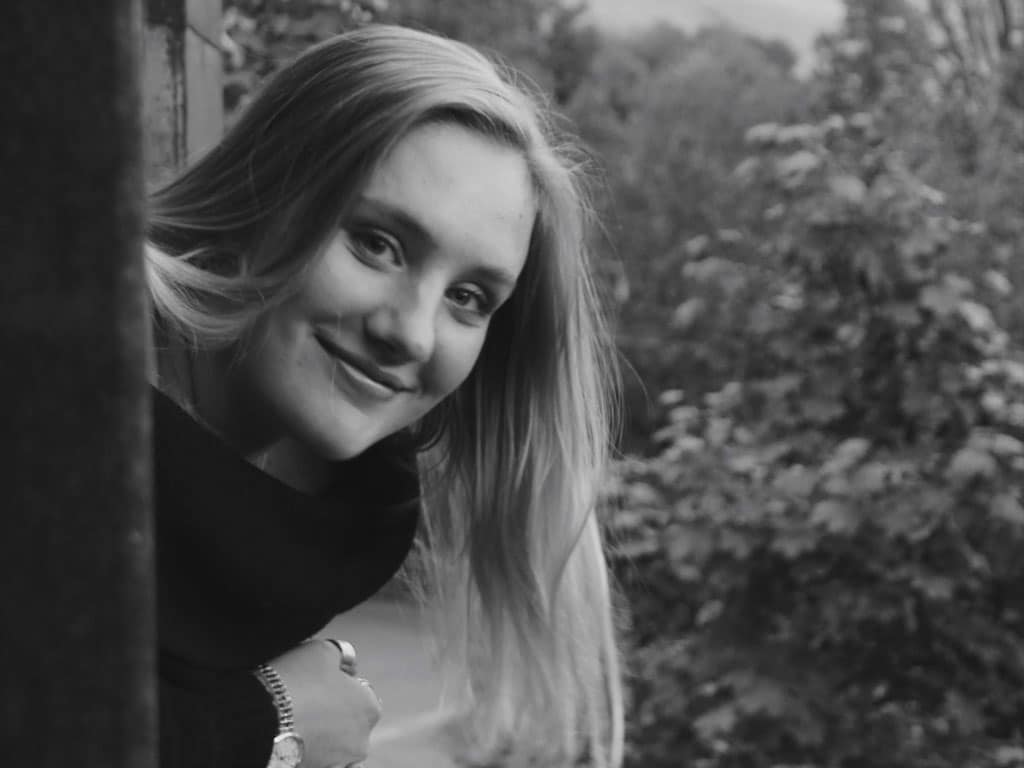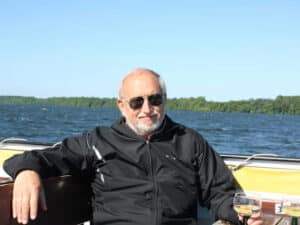Humanities Montana will celebrate its 50th anniversary in 2022. This summer, Dylan Yonce, a third-year history student at the University of Montana, had the opportunity to create the Montana Committee for the Humanities Records collection as part of her internship in the K. Ross Toole Archives and Special Collections. In her article, she discusses how her deep ties with Montana and the university made working on the collection both significant and crucial to her summer of self-discovery as she grappled with the complicated history of Montana and where she fits into that narrative. The Montana Committee for the Humanities collection is now available for use at UM, and Yonce hopes to continue working and expanding upon it after returning from her semester abroad in London.
From my early childhood, I have been tied to the University of Montana and the humanities. Growing up in Missoula, I followed my parents through the halls of Hellgate High School and to the University of Montana, where my grandfather, Fred Skinner, took the History Department by storm and served on Humanities Montana’s board of directors in the 1990s. I lived on the 600 block of Evans Ave. just off campus, and played Frisbee on the oval with my brother, watching students scurry between the library, Eck Hall, Davidson Honors College, and dorms. I longed to be 20 so that I could scurry like that too.
When I began my undergraduate degree at UM in 2019, I knew that I loved history and Montana, and that was about it. As I have progressed through my degree, I have come to realize that the intersection between my deep roots in Montana and at the university, my own love for the state, and questions on how the histories of Montana have shaped its current crises and triumphs have all culminated in my studying here. How can I make Montana a better place? How can we reconcile our tumultuous and exploitative past and present to give Montana a better future?
When I embarked on creating the Montana Committee for the Humanities Records collection this summer, I walked into the Mansfield Library thinking about these questions every day. Then, the more I sorted through newsletters, newspaper clippings, meeting minutes, congressional correspondence, and a world of other work, I realized that this is what Humanities Montana has been doing all along. During a summer where I wore an N95 mask in the office, and often to and from my car because of the smoke, it was a relief to pore over documents that confirm a long history of care and consideration for the place that I call home.
From the discussion of women in academia to Native issues, land use and preservation, and Montana’s myths and truths, I witnessed the entire narrative of Montana bend before my eyes in manilla folders boxed and sent to the university over the last 50 years. This is what I found to be most impressive and rewarding in creating the Montana Committee for the Humanities collection. Not any particular proposal, discussion, or paper, but instead a culmination of work that shows how much Montanans care about Montana, about their own futures, and about the futures of others.
I would like to thank Professor Donna McCrea, head of archives and special collections, for mentoring me through this project and others; History Department Professors Kyle Volk, Gillian Glaes, Anya Jabour, and Richard Drake for feeding my intellectual curiosities and linking me to opportunities like this one; and my grandfather, Fred Skinner, for driving my love of history and Montana’s humanities community.




